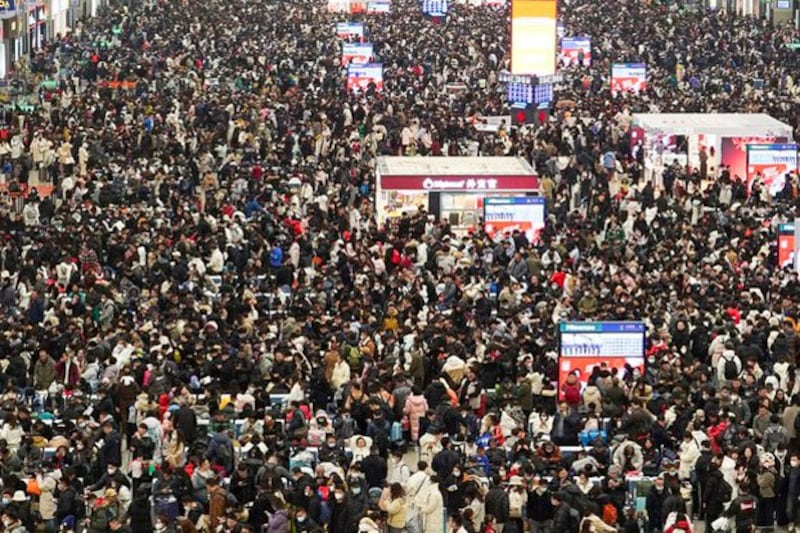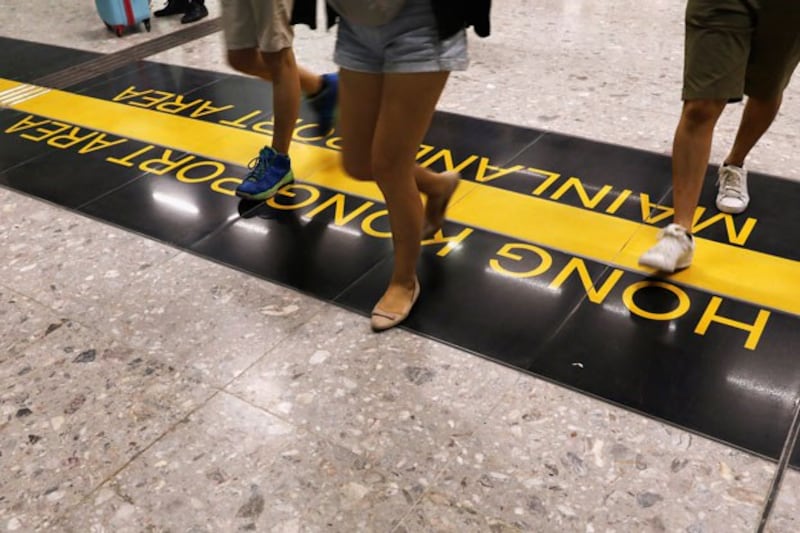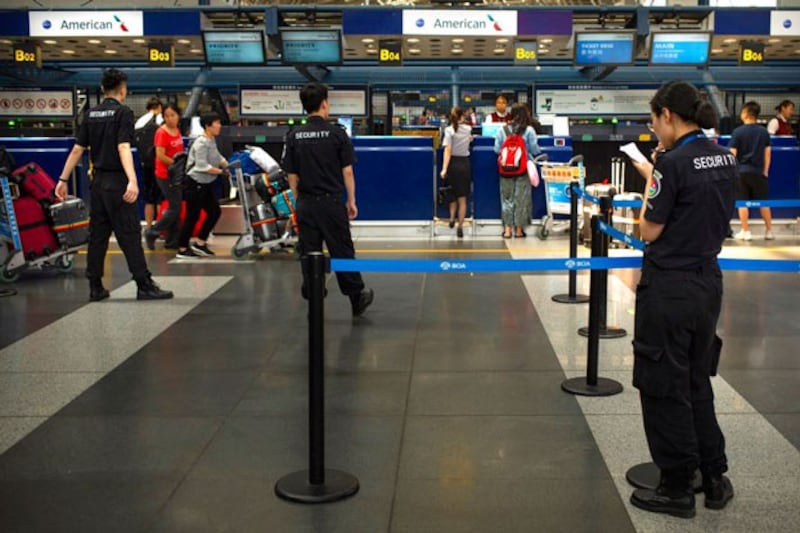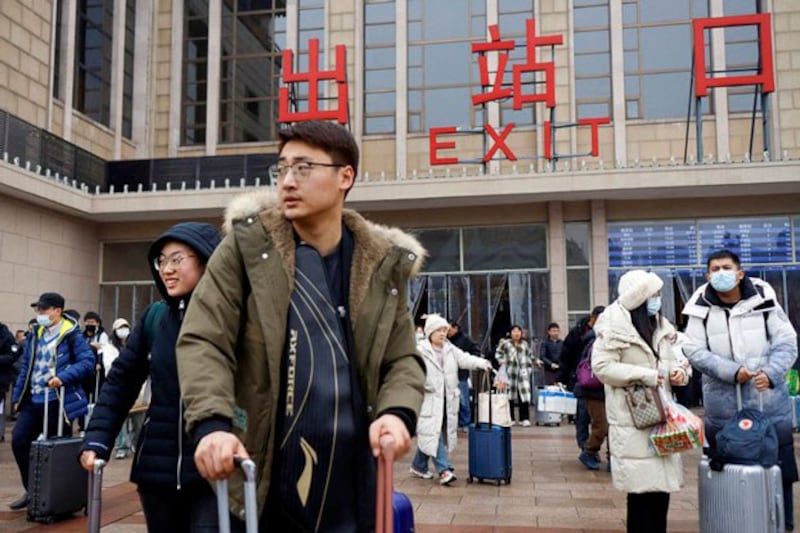The ruling Chinese Communist Party has been gradually stepping up controls on officials' personal trips overseas since pandemic restrictions ended, with many working in state organizations required to hand in their passports for "safekeeping," amid concerns that they may not return.
The party's disciplinary arm warned members earlier this year not to make overseas trips without getting the approval of their employer first, on pain of "severe disciplinary punishment."
Those who don't have a valid private passport may not be allowed to apply for one, while those who do are being told to hand them over on pain of disciplinary action, according official documents and people within the government system.

In July, Radio Free Asia reported that the authorities were stepping up travel restrictions on teachers, schoolchildren and state-owned bank staff ahead of summer vacation by requiring them to hand over their passports or ask permission before leaving the country.
A recent report in the Financial Times also quoted teachers as saying they were being told to hand in their passports.
Is this a new development?
Teachers were being ordered to hand in their passports as early as 2018, with authorities in the southeastern province of Fujian, the eastern province of Shandong and the northern region of Inner Mongolia warning them that any plans for overseas travel must first get government approval.
Similar warnings were issued to teachers, schoolchildren and state-owned bank employees ahead of the summer vacation this year, too.
Official websites have been warning of travel restrictions on employees of the Chinese state since President Xi Jinping took power in 2012, but travel curbs intensified during the three years of the zero-COVID policy, when people started leaving the country in droves in a phenomenon called the " run" movement.

Arriving air passengers in the southern city of Guangzhou told Radio Free Asia in May 2022 that border police had stepped up controls on incoming Chinese citizens, questioning them about their overseas activities and confiscating their passports.
In April of the same year, police in the central province of Hunan ordered local residents to hand over their passports, promising to return them "when the pandemic is over," amid a massive surge in people looking for ways to leave China or obtain overseas immigration status.
Who is affected by the travel restrictions?
The Chinese Communist Party's 99 million members are barred from obtaining foreign nationality or permanent residency in another country, and from applying for private passports without prior approval, according to a post on the official website of its Central Commission for Discipline Inspection.
They must also submit details of their proposed itinerary when taking private trips, and not deviate from the agreed route or engage in unauthorized activities, it said.
Officials in government departments, employees of state-owned companies and banks, and children have all been issued with warnings over private overseas travel in recent years, covering a large swathe of the population.

Travel bans have long been used by the Chinese authorities to target religious minorities and ethnic groups.
In 2022, Christians in eastern China told RFA Mandarin they were finding it harder to gain approval for their private passport applications, with applications rejected after Entry-Exit Bureau officials discovered the family's religious beliefs.
Passport recall orders and restrictions on new applications have been used to limit overseas travel by mostly Muslim Uyghurs since the beginning of the century, while similar restrictions have also been imposed on Tibetans under Xi's rule.
But restrictions are also sometimes extended to all citizens, should the government deem it necessary, as happened during the zero-COVID years.
Why is the government imposing such bans?
"Firstly, they're afraid that people will leave and never return," the wife of a high-ranking executive in a state-owned enterprise in the northeastern province of Jilin, who gave only the surname Liu for fear of reprisals, told RFA Mandarin in a recent interview.
The number of people fleeing China to seek asylum in the United States spiked sharply in 2023, as people made the grueling and dangerous overland trip to Mexico through Central America.
But there are also concerns that sensitive information could leak to overseas media or security services, as China's secret police step up warnings about potential foreign spies everywhere.

"Particularly those who work in government departments, who know more of the details about the Chinese Communist Party's internal operations," Liu said. "They strictly prohibit people from disclosing that kind of detail abroad."
Liu said her husband, who recently took a less demanding role at the company, is still subject to travel restrictions as a state employee.
"He may no longer be a leader ... but he's not retired yet, so they won't let him have a passport," she said, adding that the government is likely worried that officials will contribute to capital outflows by taking their money with them. "When people leave China, so does their money," Liu said.
A recent op-ed in the state-backed Shenzhen Special Zone Daily warned that state employees "must not keep hold of his passport for the sake of his own convenience, and must not take chances and conceal his overseas travel itinerary."
"Unauthorized illegal travel abroad is not a trivial private matter, but a major public matter related to discipline ... and political consciousness," the Feb. 8, 2024, article said.
Edited by Roseanne Gerin.
